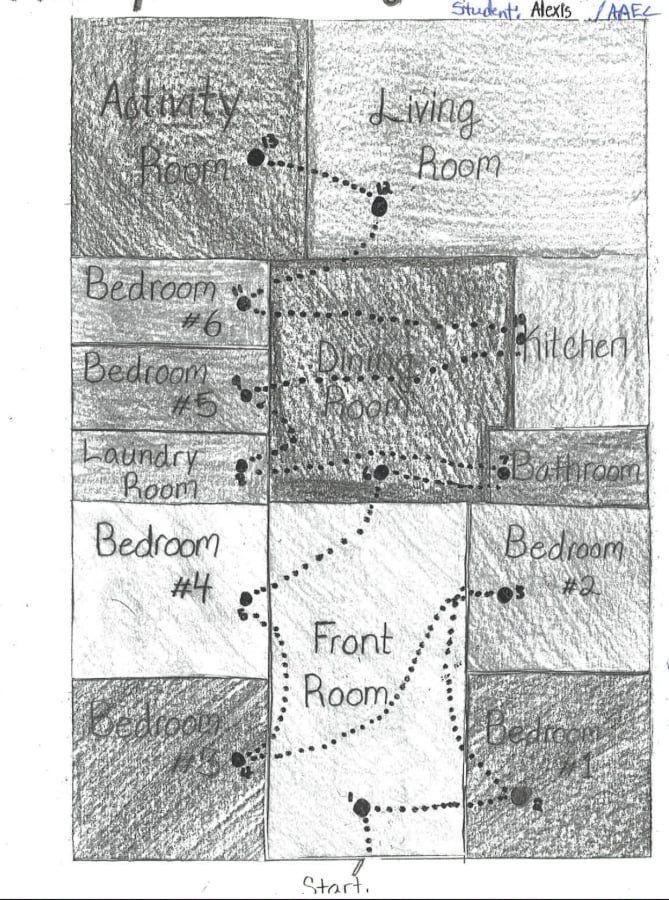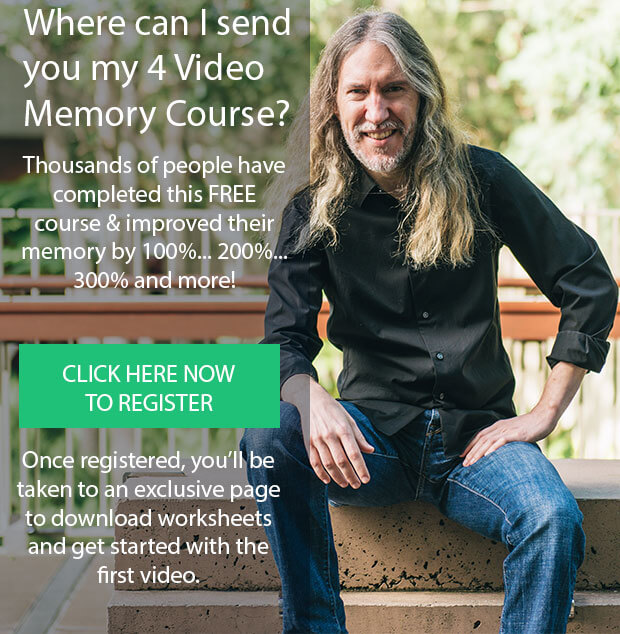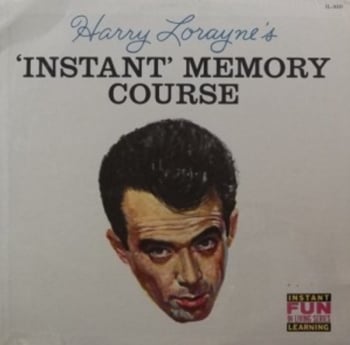Thu, 31 March 2016
Don’t worry. It happens to everyone. Luckily, we can learn from those who have gone before us. In this guest post from Jeffrey Pickett, you’ll learn how to minimize the suffering that comes from rebooting your life and how to get back on your feet in the best possible manner.
Three Reasons Why Starting Over Is So Painful
Starting over can be painful. You’d love to blame others, but after close analysis, you realize it all points back to the person looking at you in the mirror. Our careers, like cars, were meant to go forward most if not all of the time. No one likes to go in reverse. It takes more attention, more focus and more detail. Starting over means you need to back up before you can go forward. Finally, starting over sucks because self-doubts creep in the back door, playing with your mind. The sky is no longer blue, the chirping birds are dead, and someone pulled the chain, diminishing the once bright sunlight. Take heart, my friends, because it just so happens I am the self-proclaimed big deal in the world of starting over. Allow me to prove it to you…
Why You Should Forgive But Don’t Forget
In a previous relationship, well perhaps several, the occasion to try and make things work occurred a few times too many. The bottom eventually fell out and I beat myself up for letting things go on as long as I did. That guy on the street with the “The End is Near” sign was right all along. I just wouldn’t listen. When you make mistakes, learn from the event, forgive yourself and move on. Looking in the rearview mirror only serves to cause pain. Learn the lesson and move forward. Forgive while you’re at it. Holding anger or resentment towards another only sets you up for failure. Let go of the attachment to anger.
Wouldn’t It Be Cool If You Could Be Superman?
I think I’d ditch the cape myself, but having superpowers and flying around would be awesome, right? Well, back in reality-world, that doesn’t work. You can only be yourself. That’s not totally correct. Humans have this unique ability to recognize who they are and change. We can go back to school, join a gym or even seek therapy if necessary. With effort, we can become a better version of ourselves. An important facet to starting over means you have to be willing to change any aspect of your life that no longer works. Ultimately, you can only change yourself; you have no power to change anyone else. That common definition of insanity (dare I repeat it?) is accurate – to avoid more mistakes, change that which is in you versus what you have no control over.
What To Do When The World Turns Upside Down
Whenever your world upside down, forcing you to start over, a vital lesson should be at the forefront of your brain. The way we see things may not be the best perspective. You can’t mold the world to your point of view, but you can shift your perspective. Recently I went hiking with my wife. Just when the trail appeared to dead-end, I’d take one more step, and my perspective changed. The opening was there all along; I just needed a few more steps.
How To Get More Done With Less Effort
I love running. I used to train five to six days a week, running up to 15 miles on some days. But I could never improve my race times. One day, a friend of mine introduced me to running sprints instead of running long distances. I did as he suggested and my race times came down even though I ran shorter training distances. Another example involves my garage that needed some fix-up. A friend offered to help, someone with a lot more experience than I. But my pride got the best of me. I thought I’d do it myself. You can guess what happened. I ripped up most of my work, I cut my thumb open, and my kids learned a new curse word from my repeated frustrations. If only I would have invited the help and pushed away my pride… See the difference? I just needed to change my approach.
I Lied – You CAN Be Superman!
You just have to do one thing before you begin starting over. You have to learn a new skill. Maybe you need a better memorization technique… A potential reason you are in need of starting over is that as hard as it may sound, you may lack the resources to get the job done. Before starting over, research your topic of interest or situation, gain the extra knowledge and get back into the fight.
The Real Reason It’s Better to Give And Not Deceive
The world operates differently these days. You used to be able to ask for favors. But now it’s all about, “What Have You Done For Me Lately?” That’s not all bad. Instead of looking out for good ol’ #1, start over with an effort to provide value. Do things for others. Show the world you want to add versus subtract. Don’t provide something with the apparent reason you just want something in return. Give with the intention of helping. If you’re lucky (and genuine), then the gifts will come back. Give your work away. Giving is good for the soul. It’s good for your health, too. Speaking of giving, I have a self-titled website where I give as much of my experiences as I can write down. I’m focusing on health these days, so if you’d like to improve your health and lose some weight in the process, check out my free guide. Well, now you know of my experiences in starting over. I’d love to hear yours. I’ll bet they are the type of stories Jimmy Fallon/Kimmel would feature! Share what happened and what you did to get over it and I’ll see you in the comments. Further Reading How To Live An Interesting Life The post Insights to Remember Before Starting Over appeared first on Magnetic Memory Method - How to Memorize With A Memory Palace.
Direct download: Insights_to_Remember_Before_Starting_Over_From_Scratch.mp3
Category:Guest Post -- posted at: 6:36am EDT |
Fri, 25 March 2016
|
Wed, 16 March 2016
You may not be fully aware of why your monolingualism hurts so bad, but in this post you’ll discover 15 reasons to find out what you’re missing. Let’s explore each of these and see how each can inspire you to get started learning a language today. There’ll be some powerful tips and action steps for you at the end so you can get started today.
Learning A Language Exercises Your Brain
Do you ever feel like your mind has gone a bit soft? Chances are it does feel a little doughy. The good news is that learning a language is one of the best long-term workouts you can get. Working with new words and grammar rules gets multiple areas of the brain working together. And because you get to think familiar thoughts from a completely new angle, your perspective stretches more profoundly than looking at an M.C Escher painting ever will.
Language Learning Develops Discipline
Languages are fun, but also require consistency of exposure and effort. Luckily, access to languages has never been easier thanks to the Internet. However, you do have to click over to the right websites and invest your time optimally. Sites like Duolingo and Memrise offer some help, but you’ll also want to find resources that capture all of the “Big Five Musts” of language learning:
The good news is that you can get each of these done in the first half hour of your day with an additional one hour or less in speaking practice with a tutor per week. Covering The Big Five Of Language Learning is especially easy if you develop the discipline of consistently getting your language learning in before you even switch on the computer. There’s more information about making sure you get all of these done within the first 15-30 minutes of your day in my case study Mandarin Chinese Mnemonics And Morning Memory Secrets. After you’ve covered your daily language learning activities first thing in the morning, you’ll never never suffer the dreaded Zeigarnik Effect which creates intrusive thoughts when we’re not focusing on things we need to get done. For the rest of your day, you can check in on your language periodically by stocking up on podcasts, watching some Youtube videos in your target language and by using the technique taught at the end of this article. Finally, work on understanding motivation in the context of language learning. Master your motivation and you’ll make steady strides toward fluency in no time.
Language Study Deepens Your Appreciation |
Wed, 9 March 2016
Maybe even change the world. It’s a great aspiration. And an important one. And yet …
Here’s Why So Few Children Fail To Make A Mark As Grownups
Memory. Think about it. Every test your child will ever take relies on memory. And every gatekeeper your child will ever pass on the way to fulfilling their dreams hinges on the ability to recall details. Thoroughly and accurately. And since we know that the ability to succeed has everything to do with what you know (and who you remember that you know), the question is … How do you get your children started towards a superior memory so that they can succeed? I’m glad you asked because you’re about to find out. The Simple Way To Use Rhymes And Your Family Home To Learn, Memorize And Recall Anything
The best memory techniques all use buildings and other fixed locations. Why? Because the human mind has the unusual ability to remember the layout out buildings. For this reason, location-based mnemonics has lasted thousands of years. Go ahead and try it. Have everyone in your family draw a map of your home. You’ll be amazed by the accuracy each of you brings to the game. Here’s an image of a simple drawing from a young person who did precisely this activity to give you ideas and inspire you. She took the layout of her home from the drawing stage to rebuilding this floor plan in her mind so she could memorize a poem.
The Special Structure Anyone Can Use To Learn, Memorize |
Wed, 2 March 2016
Could This Man Be The GODFATHER Of Memory Techniques Of The 20th & 21st Century?(Seriously. The dude has memory courses on vinyl.) Although memory training has been around for millennia, it has seen a huge resurgence in modern times. There are now countless books and materials about memory improvement, not to mention video courses, audio programs and, yes, resources like the Magnetic Memory Method Podcast. But if there is one name who stands behind the explosion of mnemonics in the 20th and 21st century, that name is Harry Lorayne. Through his voluminous work as an author and presenter, Lorayne spawned and popularized the modern industry of memory training. Correct me if I’m wrong, but in terms of sheer visibility and quality, I think it’s safe to say that Harry Lorayne is the Mnemonic Godfather of modern memory training.
How To Survive A Terrible Childhood And Create A Memorable Career
But the future didn’t always look so promising for Lorayne. Judging from his childhood conditions during the depression-era, it seemed that the odds were firmly stacked against him. “I had an awful childhood. I’m a depression kid.” Lorayne shares in his 2012 interview with Michael Senoff. “I remember having a potato for dinner.” He was also affected with dyslexia, which he only identified as such years later. This learning disability caused him to struggle and fail while in grade school. But Harry Lorayne’s life took a different course when he discovered books on memory improvement. As he told me in the exclusive interview he gave for Masterclass members, he discovered memory techniques in a dramatic way and after learning these methods and drastically improving his grades, he started teaching his classmates on how they too could become memory masters. From there, Harry Lorayne progressively became more and more successful. Lorayne has managed to emerge as one of the most famous and published magicians and memory experts of the century. Now in his late 80s, Lorayne is still at work teaching the world about memory, success and perseverance.
The Secret Ingredient That Made Harry Lorayne And His Memory Techniques Go Viral
Harry Lorayne was born of Jewish parents in 1926 in Manhattan’s Lower East Side, right near the East River. Having come to the world only 3 short years before the Great Depression, Lorayne’s childhood was spent in impoverished and difficult circumstances. Most everyone was poor, and Lorayne was amongst the poorest of the poor. Poverty colored all aspects of Harry Lorayne’s childhood, including his play. He recalls how with his childhood friends he would play in a garbage dump near where he lived. Lorayne recounts: “The garbage became a petrified hill. They were long, petrified mountains of garbage, and that was our playgrounds. That’s what my friends and I played on when I was a little boy.” School also proved to be difficult Lorayne. Due to his undiagnosed dyslexia, Lorayne received failing grades as a young boy. To make matters worse, his father had a heavy-handed way of dealing with his son’s school performance. “I got the paper [test] home to my father to sign, and he would look at the failing grade, and he would punch me,” remembers Lorayne “I was scared. Not of getting failing grades, but of getting hit by my father.”
How Fear Created A Memory Solution That Would Help Millions Of People Improve Their MemoryPushed to find a solution, a stroke of insight struck Lorayne one day on his walk to school. “I just realized that at that point in my life, all you had to do was remember the darn answers to the questions, and then you’ll get a passing grade. And then, more importantly, your father won’t punch you.” In other words, Lorayne understood that school was more about a test of how well you could memorize than a test of ‘intelligence’. As he says repeatedly in many of his interviews “There is no learning without memory.” Lorayne soon headed to the library where he asked the librarian to show him where the books on “how to memorize” were kept. There, he immersed himself for hours in how-to books on memorization. These included books from the 17th and 18th century, and works from modern memory trainers, such as David Roth. Much of the material was not comprehensible for him at his young age. However, he understood enough to teach himself how to memorize things quickly and effectively using mnemonics techniques. From that point on, he aced his tests at school, surprising his teachers and sparing him from his aggressive father. His classmates took notice, and started to ask Lorayne how he managed to have improved his memorization so drastically. That marked the start of his career teaching others on how to memorize effectively. Later, Lorayne would even have other people teaching his techniques for him. For example, the magician Darwin Ortiz talks about teaching for Lorayne in his Penguin Magic Live Lecture. But long before being a teacher and helping others become teachers of memory techniques, Lorayne became a dropout during his first year of high school. To make an income, Lorayne started performing memory tricks for small to medium sized audiences. He would impress crowds by memorizing magazine pages, decks of cards or large lists of names. His original intention in doing these shows was to attract students to hire him for memory training. He found little success in doing so, but his shows led him to be noticed by an agent. The agent started Lorayne on a path of presenting to larger and larger audiences. By 1958, Lorayne was presenting on national television, including shows such as The Ed Sullivan Show, The Merv Griffin Show and Good Morning America. Lorayne performed on the The Tonight Show Starring Johnny Carson no less than 24 times. One of his most famous memory feats include memorizing each of the names of crowds of up to 1500 people. As much as 20 minutes later, he would be able to name each of the audience’s names when prompted. He is also known for having memorized an entire phone book. But Lorayne didn’t make his name off of entertaining others with memory tricks alone. Instead, he became famous by teaching others how to use these techniques and improve their own memories. This Memory Improvement Solution Could End |
The Magnetic Memory Method Podcast

Categories
generalMemory Improvement Tools
Memory Method Tips
Brain Exercises for Memory Improvement
Memory Improvement Case Studies
Podcast
Guest Post
Memory Palace Tactics
Practical Memory Techniques
Uncategorized
Improve Memory Q&A
Archives
AprilMarch
February
January
December
November
October
September
August
July
June
May
April
March
February
January
December
November
October
September
August
July
June
May
April
March
February
January
December
November
October
September
August
July
June
May
April
March
February
January
December
November
October
September
August
July
June
May
April
March
February
January
December
November
October
September
August
June
May
April
March
February
January
December
November
October
September
August
July
June
May
April
March
February
January
December
November
October
September
August
July
June
May
April
March
February
January
December
November
October
September
August
July
June
May
April
March
February
January
December
November
October
September
August
July
June
May
April
March
February
January
December
November
October
September
August
July
June
May
April
March
February
January
December
November
September
| S | M | T | W | T | F | S |
|---|---|---|---|---|---|---|
| 1 | 2 | 3 | 4 | 5 | ||
| 6 | 7 | 8 | 9 | 10 | 11 | 12 |
| 13 | 14 | 15 | 16 | 17 | 18 | 19 |
| 20 | 21 | 22 | 23 | 24 | 25 | 26 |
| 27 | 28 | 29 | 30 | 31 | ||
Syndication

 Have you ever gone through a phase that forced you into starting over from scratch?
Have you ever gone through a phase that forced you into starting over from scratch? Alex Stone Shows You How Magic And Memory Can Heighten Your Sense Of Reality
Alex Stone Shows You How Magic And Memory Can Heighten Your Sense Of Reality
 You’ve dreamed about it for years. Opening your mouth and fluently speaking a foreign language. You know just how deeply that ability would fill the wide open gap in your soul.
You’ve dreamed about it for years. Opening your mouth and fluently speaking a foreign language. You know just how deeply that ability would fill the wide open gap in your soul. You want your children to remember what they learn, right? You’ve probably even hoped that they’d learn enough to succeed in life.
You want your children to remember what they learn, right? You’ve probably even hoped that they’d learn enough to succeed in life.



